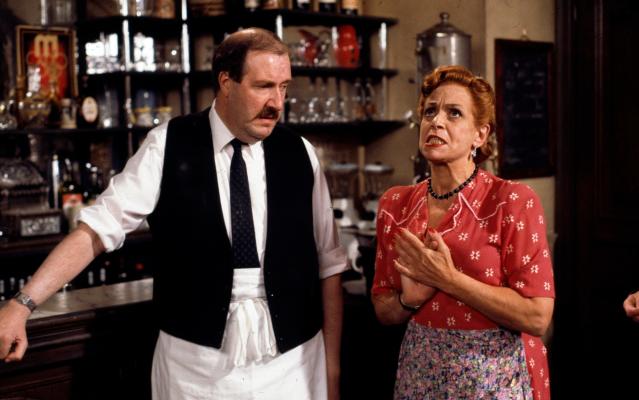Britain was never really a European country

Views (112)

It seems that we could have read Brexit in the tea leaves of a good strong cuppa, or at any rate in the brilliant comedy programmes of the sixties, seventies and eighties, without needing a referendum. In a recent academic article Gavin Schaffer at the University of Birmingham has analysed Dad’s Army, Fawlty Towers and Allo Allo and has argued that they were unexpectedly subversive in their attitude to Europe, prefiguring Brexit.
These were TV series that delighted in caricatures, but they were caricatures in which British people felt they could recognise part of themselves. Dad’s Army offered the bumbling and self-important Captain Manwairing, for whom by and large things turned out all right in the end; Sergeant Wilson, well aware of his social superiority but too much a gentleman to challenge Mainwaring; and above all a team of eccentric volunteer soldiers affectionately bound together, despite all the irritation that arose among them – a picture, in other words, of the nation itself as it faced the greatest danger in its long history.
But this was an era when far fewer people travelled abroad on holiday, and the great majority never went beyond Europe. What they saw of Europe was confined to France, Italy and Spain, the home of Manuel, the incompetent waiter in Fawlty Towers. Europe was exotic. People loved Paris because it was so “romantic”, “charming”, “elegant”, even if they complained at the rudeness of Parisians (since when they have apparently been sent to charm school, as the rudeness has largely disappeared).
One resigned oneself to chaos because that was how Continentals supposedly lived. I lived for a time in Italy and regarded the station announcement that “the express train to Florence is travelling five hours late” as an everyday experience. A letter could take three weeks simply to cross Rome. Now, it is the other way around. The post works quite well – there, not here. Italian trains are more punctual than British or even German ones – which, in those days, were known to “run on time”, because that was part of the German character.
All this was complicated by the British refusal to master languages properly. The French were regarded as particularly intolerant of those who murdered their language, and remain especially jealous of the advance of English into the position of number one world language. A Churchillian pronunciation of French was the best many could offer, or really wanted to offer. That was how it was when we joined the Common Market, as it was then known.
0 Likes
